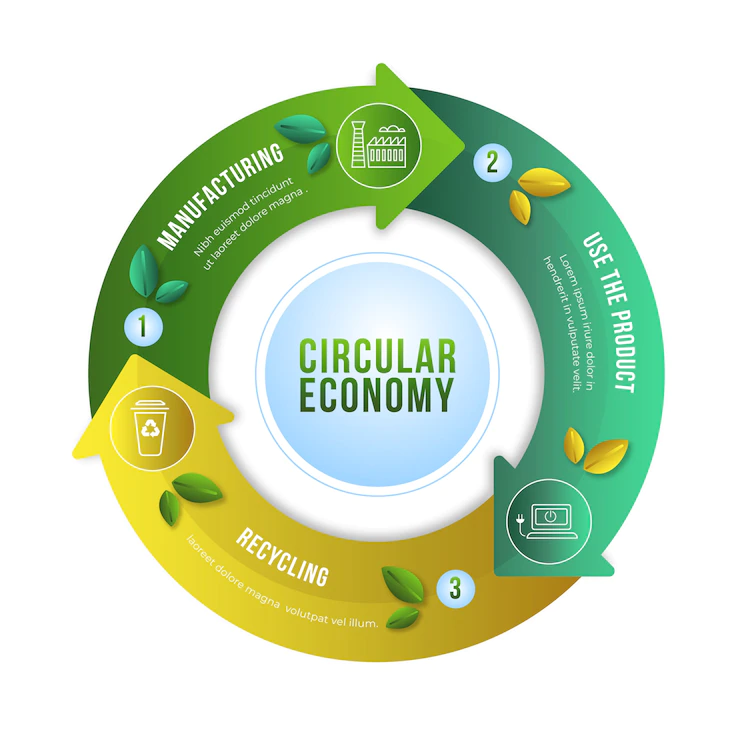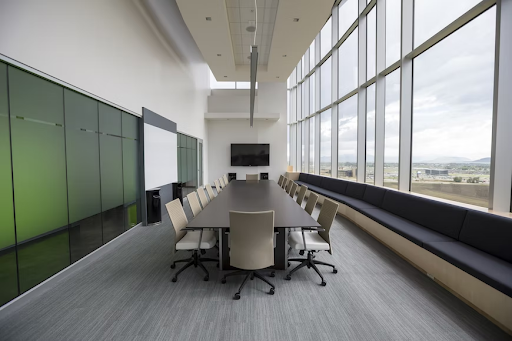|
What does future-proof mean? That is a question on the minds of business owners everywhere when faced with the looming spectre of climate change and the need to create more resilience going forward. Future-proof means your business is aligned with Net Zero protocol, supports the mental wellbeing of employees, and has the right strategies in place to handle systemic shocks.
Net Zero Strategy Governments around the world are starting to put pressure on businesses to create a Net Zero strategy that supports global efforts to curb the worst effects of climate change. The last few decades have had more natural disasters globally and record-breaking temperatures in the UK. Creating Net Zero carbon emissions for your business isn’t straightforward; a holistic approach is needed to create a balance of Net Zero carbon that doesn’t affect your productivity or bottom line. Find out about these strategies at Net Zero week or get involved in Net Zero for Teams. Mental Health Support Health and wellbeing have always been important factors in business productivity and employee morale. In the past, much attention was paid to the physical condition of workers, the lower back and neck can become strained and lead to productivity losses, but there is more to think about. Mental health issues, such as eco-anxiety, are causing productivity and morale issues in the workforce, especially in companies that have a remit for climate change protocol. Future-proof your business by making sure your workforce has the mental health support they need at work. Future Proof Training If the global pandemic has taught us anything - and it taught us quite a lot - it’s that no business is immune to unexpected shocks. Coupled with the uncertainties caused by climate change and geopolitical events, there is a clear need to protect businesses using some future-proof training. Future-proof your business by retaining more customers, creating a Net Zero strategy that works, making your workforce more resilient by addressing eco-anxiety and other mental health concerns, and by adopting future-proof technology such as remote working conditions and cloud-based networks. Of course, there is always more to learn, but these give you foundations. Remote Working Jobs The global pandemic accelerated conventional business processes by around five years, according to analysts. It was expected that most businesses would switch to remote working or hybrid environments in the next five years, but these systems are now in full operation. Remote working jobs for employees help to future-proof the business because it reduces the need for office infrastructure and creates a flexible working environment that can sustain shocks more easily. Adopting a cloud-based network is also an effective way to future-proof a company. Paper Free Office Going paper-free in your business or organization is another way to future-proof your business. It might sound surprising, but adopting digital formats instead of using conventional documents supports Net Zero carbon and improves your bottom line. Not only that, a paper-free office means you have easy access to important data from a range of locations whenever you need it. Image Credit The Wellbeing Economy is a movement for transforming the existing economic systems to support the wellbeing of people and planet, instead of wealth creation and environmental depredation. This theory of change can also be a powerful driving force towards Net Zero success. Find out more about the elements of the Wellbeing Economy and why it matters.
Circular Economy Until recently, the world used a linear economy predominantly, which is a system of production and waste. In the linear economy, raw materials and collected and turned into products that are sold through supply chains to consumers. When they are used, they move to landfills as waste. The linear economy is wasteful and carbon-heavy; it is not in line with people and planet and does not support Net Zero efforts. Although it is not perfect, the circular economy is more sustainable. A circular economy values sharing, reusing, recycling, and reducing consumption. Energy Efficiency In order to reach the UN's target of Net Zero by 2050, individuals, businesses, and public organisations have a part to play; at the same time, the Wellbeing Economy needs to maintain dignity and ensure that everyone has enough resources to exist comfortably on the planet. When it comes to energy efficiency, it's the responsibility of governments to ensure that renewable energy and other Net Zero technologies are funded and accessible to the general public; that said, individuals and businesses can support Net Zero efforts with internal choices. Eco Anxiety Eco anxiety is a fear about the future of the planet based on what we now know about climate change and the effects of carbon in the atmosphere. Eco anxiety can affect anyone, but it's more likely to affect people with more knowledge of the climate crises and the realities facing us. While eco-anxiety sounds adverse, it can also be used as motivation to support Net Zero efforts, sustainability, and the Wellbeing Economy. Eco-anxiety can be challenging to manage and affects productivity; that's why businesses and organisations can benefit from peer support. Sustainable Food Food is a necessary part of the economy, but the ways it is produced, distributed, and consumed have an impact on people and the planet. Large-scale food production accounts for one-quarter of greenhouse gas emissions globally, including distribution and refrigeration. Again, creating a more sustainable food system requires structural changes like sustainable farming practices, food waste reduction, and animal welfare, but individuals have a part to play in the choices they make when they visit supermarkets to support more ethical food production. Mental Health While eco-anxiety is part of mental health in the Wellbeing Economy, it is not the only factor. Society has unfolded in ways that support consumerism and wealth accumulation, not physical, emotional, and mental wellness. The Wellbeing Economy is about changing these dynamics. Putting the welfare of people and animals at the heart of society is the best way to adjust priorities and create a fairer, more sustainable world. When people are valued over wealth, it changes society's mechanics, improves mental health and harmonises the people and planet. Image Credit Have you experienced feelings of worry and fear about the future of the planet? This is called eco-anxiety, and it's becoming more common. Eco-anxiety is a newly coined term, but it is relevant to the experience of individuals and organisations in the modern world. Find out more about eco-anxiety and why it matters at The Surefoot Effect, along with our net zero offering.
Anxiety Types Anxiety affects everyone to some degree; some have occasional worries and fears, while others suffer from chronic and debilitating conditions. Medical professionals have separated these anxious feelings into categories that include general anxiety, panic disorders, OCD, and others. But we don't have to have a disorder to suffer from anxious feelings from time to time; in fact, most people experience some worry, stress, or fear, on a daily basis. Thanks to our biological evolution, our brains are encoded to search for life-threatening dangers, even in a home office. Eco Anxiety If you're feeling anxious and don't know why it could be due to the condition of the world at the moment and your fears about the future of society and the wellbeing of future generations; this is considered a form of eco-anxiety according to the American Psychology Association (APA). As with all anxiety, it affects different people in different ways, but it's clear that people with eco-anxiety have a greater awareness of the climate challenges faced by the planet and a realistic view of where we stand. As with other types of anxiety, it can range from mild to severe. Affected People Climate change is the biggest challenge of our generation, thanks to a legacy of inattention and profiteering in previous decades. Today, it is hard to find anyone unaware of the impact of climate change in local communities and on a global scale. That's why eco-anxiety is growing. The more information and awareness a person has about the effects of climate change, the more likely they are to experience the symptoms of eco-anxiety; these include stress, sleep disturbances, nervousness, and in severe cases, it can lead to depression and hopelessness. Affected Business Eco-anxiety is an existential condition arising from reflection on recent political changes, environmental challenges, and general attitudes in society; it can lead to despair about people’s lives and future. Employees might start to question the usefulness of their roles in the company. Employees affected by this kind of anxiety can be less motivated and less committed. On the other hand, if a company is committed to climate action in the form of net zero practices like green supply chains, the opposite is the case. Eco-conscious employees respond to the call. Surefoot Services Have you experienced eco-anxiety, or does it affect the quality of work in your business? It's easy to access support for eco-anxiety through The Surefoot Effect, which offers workshops and a peer support service to individuals and companies. We can only serve the planet if we have the strength, resilience, and motivation to make a difference in workplaces and communities. Image Credit Does your business have a Net Zero strategy yet? If not, it’s only a matter of time before you have to think seriously about implementing one. The UN has stepped up its efforts to meet global targets and small businesses have a big part to play. Becoming part of the solution not part of the problem improves brand recognition, revenue expectations, and future resilience.
Net Zero Targets Net Zero - the point at which the levels of carbon dioxide (CO2) emitted across industries and other greenhouse gases (GHG) - is the same as the emissions captured by the planet and various technologies. The UN hopes to limit temperature rise to 1.5 degrees C by 2050. In 2015, The Paris Agreement was signed by 193 countries that committed to the UN's target, in 2021 the same parties agreed to step up efforts and meet every year instead of every five. Data shows a downward trend, but we are still on track for 2.5 degrees C by the end of the century. Climate Change Conference Cop 27 in Sharm el-Sheikh Egypt built on some of the commitments and ideas discussed a year earlier in Glasgow. It is the largest gathering of political leaders, climate activists, and business CEOs in the world, and it’s important for all businesses to take action. Some of the critical issues covered in the climate conference include reducing greenhouse gas emissions, building resilience in business communities, adapting to the impacts of climate change, and finding finance to fund climate action. It’s clear more action is needed for results. More Action Needed Digging into numbers is useful for official figures but it doesn’t help businesses at a grassroots level, how can ordinary businesses implement the right changes and measure them to be sure they are on track? First, they need to commit to creating a progressive Net Zero strategy. Implementing a Net Zero strategy is not always straightforward, much of the success depends on understanding the nature of the business and what is needed to achieve Net Zero results. To achieve Net Zero status a business must have emissions reductions of 95% and offset the rest. Business Benefits Research shows that while 50% of UK businesses are aware of the government's Net Zero targets 76% of them have yet to implement a Net Zero strategy. It’s concerning because 50% of UK emissions are generated by small businesses. So what is their motivation to meet Net Zero? Apart from the obvious planetary consequences of “business as usual” there is also a commercial gain. In a changing marketplace where consumers value ethical products and green supply chains, businesses can improve their reputation, reduce costs, and create resilience. Net Zero for Teams Implementing a Net Zero strategy is not as simple as it sounds, it requires transforming the internal workings of the business to align with government standards. Net Zero for Teams is a program that can help your business implement solutions to achieve Net Zero in the short term; this makes your business more sustainable, resilient and helps to improve your bottom line. Image Credit |
�
AboutHere’s a collection of some of our articles which have been in our newsletters or published elsewhere.
Archives
May 2024
|
Sign up TO SUREFOOT NEWS >>The Surefoot Effect equips people, communities and organisations with skills for sustainability and resilience.
|




 RSS Feed
RSS Feed




